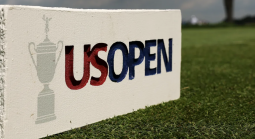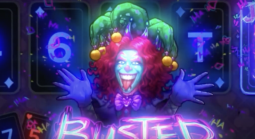Australian Gambling And Politics: Fun And Games

G'day punters, journos, sports nuts, high rollers - casino whales, gambling millionaires and billionaires, media tycoons, politicians, insiders, outsiders, ... one and all. You know who you are. This is yet another instalment into the Australian gambling and political wars, with a dash of techno jargon... Media Man http://www.mediamanint.com and Gambling911 probe the Australian political landscape and learn that the gambling involvement of Australian politics is astronomical, and is right up there will health care, military - defence and law enforcement...
Biometrics Via Pubs And Clubs Predicted To Have Have Failure Rate; Parliamentary Inquiry Dealing With Here say, Facts, Lies, Guesses And Agendas...
At the Joint Select Committee on gambling reform chaired by Independent MP Andrew Wilkie last week, Ian Donald, technical director for smart card company Regis Controls said that the biometrics would be an economically unfeasible technology for clubs to implement in curbing problem gambling. He said that biometrics in passports have a 10 per cent failure rate and this would only be compounded in a pub, club or casino environment, where he predicted failure rates as high as 30 per cent. "About 12 per cent of the population do not have a fingerprint. They are too old or they have been engaged in manual work and it may have worn off. There is no wall on the end of their thumb. Biometrics are going to be a much more expensive solution," he told the committee. "This is mainly because, if you have to maintain 197,000 biometric readers ... it is going to be extraordinarily expensive. You are looking at something like five times the cost for biometrics." Donald said there would have to be many exceptions made to the system if biometrics were used. "What do you do if an 80-year-old pensioner wants to play her favourite Black Rhino machine and she has no fingerprint? Do you make an exception? How many exceptions do you make?" Donald said that biometrics would also be easily tampered with. Especially if a USB device is used, as has been floated as part of the review. "It is very easy to overcome biometrics if you are a problem gambler, particularly if it is a USB. All you need is a screwdriver or a penknife and you can destroy the biometric." Donald said USB thumb drives would be "overkill" to reduce problem gambling and advocated a smart card alternative. Donald said each smart card would cost $5 at most to produce and the system could be in place nationally by 2016, because roughly 50% of the industry already had approximately 50 % of poker machines with smart card systems attached. "I would do a pilot to see if this technology works in a club or pub. If you set a national standard by June next year for then I think by 2016, given the average life of a poker machine is about six years, you would find that 90 per cent were smart card enabled," he said. Donald was quick to point out that although Regis Controls was involved in smart card systems, the company would not be bidding for any tenders that eventuated from the review.
South Australian Indy Gambling Authority Not Completely Sold On Smartcard Tech; Shortcomings Obvious; No Magic Bullet; Problem Gamblers Need A Real Cure...
The Independent Gambling Authority (IGA) of South Australia has embraced smartcards to limit problem gambling, in a luke warm fashion, warning politicians last week the technology could have adverse effects on the industry, as well as not be a complete solution or "magic bullet". IGA presiding member, Alan Moss told a recent joint select committee on gambling reform - chaired by crossbench MP Andrew Wilkie that while the organisation’s support for the introduction of smartcard technology had not waned, there was concern around the technology being introduced too rapidly. "Our concern is not that there are problems in regulation per se, our concerns arise more from unintended consequences to the industry if the implementation of this type of smartcard technology is too rapid," Moss said. "We think that it is possible that, if the implementation is too rapid and it is too onerous to get the card, there will be a significant percentage of people who simply stop playing because it is too difficult." According to Moss, the implementation of the smartcard technologies should follow in the footsteps of the anti-smoking legislation which was introduced over a five-year period. "Although there was initially a significant drop in net gaming revenue from poker machines when that legislation was first introduced, over time the hotels have pretty much returned to pre-smoking legislation revenue in relation to their gaming venues." In September last year, the Prime Minister Julia Gillard made a commitment to the overhaul of poker machines with "pre-commitment technology" being applied to the gambling devices by 2014. The technology would require gamblers to log into poker machines via smartcards that will identify them to a network which systematically tracks their play over time. Players would be able to set limits on their play, and exclude themselves from playing at any time. At the time, Wilkie said the login technology would ensure individual settings for the whole system could be easily changed to suit each gambler and drive an overall improvement in their lives. Currently, Moss says South Australia has 900 people actively participating in the barring scheme where people can go to the authority and request to be barred from certain venues, however he notes, this figure is just "the tip of the iceberg". Despite this, Moss maintained the concept of introducing a "maximum bet limit" or "dollar bet limit" would not be beneficial to the industry. Contemplation of other identified technologies, such as biometrics, were also raised at hearings held across the country last week. In a Victorian hearing, Regis Controls technical director, Ian Donald, warned biometrics would be a poor solution, as failure rates could be as high as 20 to 30 per cent. "On one in four occasions that a player wants to log on to a machine, they cannot using a biometric," Donald said. "What happens in that situation?" According to Donald, these failures occur for a number of reasons, including the notion that approximately 12 per cent of the population do not have an identifiable fingerprint, due to old age or manual work. Biometrics would minimise but fail to eliminate card sharing, as some could still use another player's thumbprint. Donald also pointed to the expense involved in implementing and maintaining up to 197,000 biometric readers at poker machines across Australia. "It is totally uneconomic and clubs would close in that situation." The committee is yet to release a final report on its findings. Insiders tip more a new media and pr war on the horizon, as the battle for minds, dollars and votes continue.
Aristocrat Needs Additional Time; Not Playing Games?...
Australia's largest manufacturer of poker machines, Aristocrat Leisure, told a parliamentary inquiry yesterday that the best solution for its attempts to curb problem gambling would involve replacing the 200,000 or so machines installed nationwide. The government has proposed a mandatory pre-commitment agreement, under which punters will have to nominate - before they are allowed to gamble - how much they are prepared to lose. Aristocrat, the name behind 60 per cent of the poker machines installed throughout Australia, said a ''machine-based'' solution, with restrictions encoded in each poker machine, would minimise infrastructure costs, particularly for smaller venues. In a submission to the inquiry, Aristocrat said that given the complexity and number of monitoring systems for poker machines in Australia, it does not believe a solution based on centralised monitoring across a network is ''achievable by 2014, much less the 2012 deadline contemplated in the Gillard-Wilkie agreement''. Trevor Croker, the head of Aristocrat's Australasian operations, told the inquiry yesterday the company's solution could be rolled out as part of a ''normal machine replacement cycle'' with a completion date of 2016. The committee's chairman, the independent MP Andrew Wilkie, said he could not help but feel there was an element of ''self-interest'' in Aristocrat's proposal ''that will be more costly and take longer to roll out''. He cited a Merrill Lynch report that said a machine-based solution would be in Aristocrat's commercial interests. Replying to the committee's questions, Aristocrat said that its machines had an average retail price of $25,000 but, in some cases, implementing the commitment scheme would only involve a software upgrade costing about $3000. Aristocrat did not offer an estimate of how much its proposal would cost. The company said it sells between 6000 and 7000 poker machines in Australia a year. Clubs Australia also appeared before the committee yesterday but with a far more combative approach towards the government's proposals. It said existing harm-minimisation plans are effective, and offered support only for a voluntary pre-commitment scheme. It also challenged estimates that mandatory pre-commitment could cost as little as $1.50 a day, compared with daily revenues each poker machine of up to $800. "The actual average daily revenue per machine in clubs in NSW is $130, before tax and other expenses," Clubs Australia said in its submission. It said that 250 smaller clubs record daily revenues of only $25 a machine, while the top 25 clubs in the state report daily average revenues of $250. Clubs Australia said the $1.50 a day figure quoted by committee member senator Nick Xenophon was based on a voluntary model in Queensland, not the mandatory, nationally networked version being pursued by the government. "Clubs Australia believes the Australian government has severely underestimated the size and cost of the technical undertaking required to link electronically 197,000 machines, in 5700 venues, with different manufacturers and models, currently operating on different state operating platforms and protocols, by 2014."
Aussie Aristocrat Battles To Stay Positive; Pushes Innovation Despite Troubled Industry...
Gambling juggernaut, Aristocrat, has shown of its latest tech, the Viridian Widescreen cabinet down under in Australia and to land of sheep, New Zealand. The new widescreen cabinet and new games portfolio will be on display at this year’s Club Manager’s Association (CMA) tradeshow (February 28th - March 2nd) and at the Hospitality and Gaming Australasia expo (Mar 16-17). Powered by the Gen7 platform, the Viridian WS provides players with 24% more graphics area, high resolution graphics and enhanced stereo sound. Yeah, hear better how much your winning or loosing! The cabinet will provide a flexible foundation for innovative new game concepts. Aristocrat managing director – Australia and New Zealand, Trevor Croker, said that the 2011 product portfolio is one of the best Aristocrat has put out to date. "Our experienced game designers and product managers have confirmed that this is undeniably the most exciting line-up Aristocrat has had in 10 years. Customers and operators will evidently see that this is a year for genuine forward thinking that delivers real results," Croker said. Along with the Viridian Widescreen cabinet, comes a game portfolio that includes the latest licenced product the Phantom and also Jackpot Catcher, modelled on one of Aristocrat’s most recognisable games... the legendary Indian Dreaming. In addition to these, Aristocrat has a number of exciting new games including Emperor Penguin, Chariot Champion, Don Quixote and Dragon Emperor. "We are excited about the gaming experience that this product portfolio will bring to gaming floors. Our Viridian WS cabinet, new product categories, a solid games library, and innovative product packages, will deliver the performance and diversity customers and operators have been looking for from Aristocrat," Croker said.
One Media Man Int Asia Pacific based media and gambling commentator was overheard to say "Aristocrat are doing some great stuff despite some legal and economic wows. With the game developments, great, but what about the likes of games featuring Ric Flair, Frank Sinatra, John Rambo, Kerry Packer and Underbelly. Punters are crying of for these. We suspect their may be legal complications, but where there is a will, their is a way... unless the likes of IGT and / or WMS have given the Aristocrat paperwork on what they can and can't do, which could be likely given the landscape of the gaming sector at the moment. Kudos to Aristocrat for not giving up, and maintaining the Aussie digger spirit."
PM Gillard To Meet States Over Gambling; May Try To Force Hand; States Bluff Or Hold Ace Or Joker?
Gillard will meet state and territory leaders on Valentines Day, but insiders say their will be no or little love shown. The MP joked heart-shaped bicies will be served and is optimistic "the spirit of Valentine's Day breaks out" This will be Gillard's first Council of Australian Governments summit since snatching the highest office in the land 8 months back. It's also the virginal meet for for Victoria's Ted Baillieu and Tasmania's Lara Giddings. NSW head Kristina Keneally, has the odds staked against her. Will problem gamblers get much of a look in? Some mention almost certainly. The Fed want, and possibly, need, the gambling dollars, as they look to wrestle it away from the states. Gillard made that well documented deal with Tasmanian "independent" (known to be bias when we quizzed punters at the track and local gaming venues) MP Andrew Wilkie. His vote was a key factor in Gillard's victory at the last election. Every pokie will be fitted with new "pre-commitment" technology to limit the amount people can lose, if you believe the spin. Gillard oked to have laws green lighted by May next year, so things would be up and running by 2014. That's the wish anyway. They also aim to enforce a $250 daily withdrawal limit on ATMs at pokie palaces and require warnings to be displayed on screens. On 23rd June 23 2010, the day before Gillard replaced Rudd as Prime Minister, a Productivity Commission report found that 600,000 Australians played the "one armed bandits" at least once a week. Casual gamblers make small bets but "high intensity" players can easily lose $1500 or more in one hour, so the story goes, but may question the figures. $20 billion was gambled away by Aussies between 2008 and 2009, with $12 billion spent feeding the slots. States get $4 billion a year in taxes they net in from gambling. 'Mr X' perhaps trying to get less haters went on record with "I'm not trying to stop gambling. I'm not trying to get rid of pokies". He admits he is trying to reduce harm by the bandits. Wilkie says he has "a genuinely open mind" on pokies. He went on record with "Some can afford to lose $1000 a day while some others can't afford to lose $10". The relevant Aussie minister Jenny Macklin, stated gambling is "a celebrated part of Australian culture" and 145,000 jobs in the hospitality and tourism industries depend on people who like a bet. Who is bluffing, who is a joker, and who holds the cards? Will will find out soon enough.
NRL Match Fixing Scandal: Canterbury-Bankstown Bulldogs - North Queensland Cowboys; More Investigations And Revelations On The Way...
As you might expect, the arrest of Ryan Tandy for his involvement in the fix is just scratching the surface of things. The club was briefed before Tandy was arrested and charged last week with giving false information to the NSW Crime Commission in its investigation over suspicious betting activity arising from a North Queensland Cowboys-Bulldogs match in Townsville on August 21. "This is not the end of what they're doing," a source said. "This is their way maybe to get closer to it and there's some bigger fish to fry." Tandy is at the centre of the investigation after a plunge was made on a Cowboys penalty goal being the first scoring play. The Canterbury prop gave away a cheap penalty in the opening minutes of the match right in front of his posts. Tandy's home was raided last week and his mobile phone was confiscated by Strike Force Suburb of the Casino and Racing Investigation Unit. The homes of Tandy's manager, Sam Ayoub, and the mother of league identity John Elias have also been raided. Tandy is facing up to five years in jail and has been stood down by the club from all activities pending his appearance at the Downing Centre court on March 3. "The investigations are ongoing and detectives are urging anyone who has been involved with, or who has information about, criminal activity regarding the betting allegations, to come forward and speak to police while they still have the opportunity," a police spokesman said. The Bulldogs refused to speculate on their talks with police after opening up training for the first time since Tandy was arrested, but were happy to present a united front over the decision to stand him down. Chief executive Todd Greenberg, coach Kevin Moore and captain Andrew Ryan all faced the media pack to justify the move, although they admitted to not speaking to Tandy since he was banished last week. "They're not pleasant decisions to make but we thought the decision we made was in the best interests of the club," Greenberg said. "The other players have been very supportive of the decision and they're confident they can start preparing for the 2011 season right now." The NRL also refused to comment on its discussions with police but chief executive David Gallop said the incident could prompt changes, including creating a post to police the area. The league is one of several sports working with former Australian Cricket and ICC chief Malcolm Speed on ways to combat illegal gambling. "We don't have a full-time employee dedicated to that but we've obviously been fortunate to pull in (NSW racing steward) Ray Murrihy, an absolute expert in the field," Gallop said. "We'll be reviewing our resources and, as I say, working with the other sports and the government to see what we need to do to make sure there's no suggestion of corruption around rugby league. "An in-house resource may well not have the expertise Ray Murrihy has, so there are different arguments around the issue but certainly where we need dedicated resources we won't hesitate putting them in place." The Bulldogs had a disappointing season last year but have recruited strongly. Trent Hodkinson, Kris Keating, Frank Pritchard and Aiden Tolman have joined for 2011. The club will play its first trial match of the season against Sydney Roosters at Leichhardt Oval on Saturday night and there will be plenty of interest in the squad that Moore names on Tuesday. "It was a tough one (to stand Tandy down) but we've got a competition to focus on and our preparations right through the off-season have been on the trial matches starting this weekend," Moore said. "It's a decision based on the best interests of everyone." Ryan admitted he felt sorry for his former teammate but the club had made the right decision and the players needed to move on. "Obviously it's disappointing but we've got games to play this coming Saturday. Our focus is to play footy this weekend and hopefully get the best 17 out on the field for game one," Ryan said. Gambling911 and Media Man are hopeful that the NRL once and all can eliminated any more match fixing scandals.
Take the time to research and learn games before placing down money
Media Man http://www.mediamanint.com Casino News Media and Gambling911 are website portals. Not casinos as such, however are recognised as world leading websites that cover the sector and act as central points to games, news, reviews and more.
Readers... er, punters, how did you like our report? Tell us in the forum.
If you have a bet, please bet with your head, not over it, and for God's sake, have fun.
*Greg Tingle is a special contributor for Gambling911
*Media Man http://www.mediamanint.com is primarily a media, publicity and internet portal development company. Gaming is just one of a dozen sectors covered













